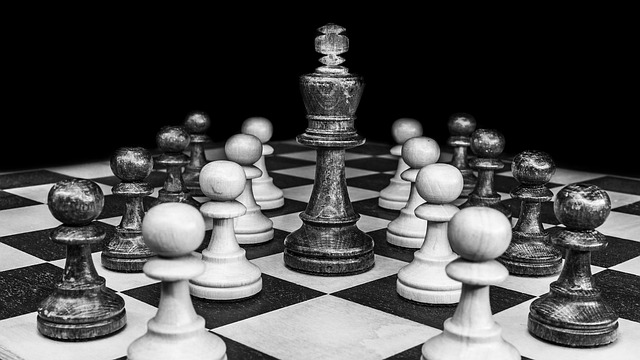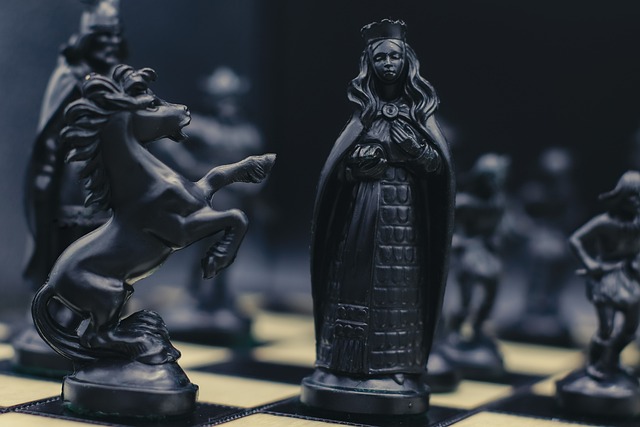Welcome to the intriguing world of chess, where strategic battles unfold on the 64 squares of the board. Throughout history, countless remarkable players have graced the game, each leaving an indelible mark on its rich tapestry. In the realm of chess, one question has captivated enthusiasts and experts alike: “Who is the best chess player of all time?”
This question sparks endless debates, fueled by contrasting opinions, statistical analyses, and subjective assessments. The quest to determine the ultimate chess champion encompasses a fascinating exploration of unparalleled mastery, awe-inspiring brilliance, and game-changing contributions to the sport.
In this exploration, we embark on a journey to uncover the chess prodigies, grandmasters, and champions who have left an enduring legacy. We’ll delve into the annals of chess history, examining the lives, styles, and achievements of these extraordinary individuals.
What Defines Greatness in Chess?
Greatness in chess is defined by a combination of factors that go beyond mere skill and accomplishments. While strong technical ability and a deep understanding of the game are essential, greatness in chess also encompasses creativity, originality, innovation, and the ability to produce memorable games.
A great chess player possesses strategic and tactical brilliance, adaptability, and the capacity to outthink opponents in challenging situations. Their contributions to chess theory, their impact on the development of the game, and their longevity at the highest level are also significant factors that define greatness. Ultimately, it is the combination of exceptional talent, achievements, and lasting influence that distinguishes the truly great players in the history of chess.

Who Holds the Title of World Chess Champion?
As of my knowledge cutoff in September 2021, the title of World Chess Champion was held by Magnus Carlsen from Norway. Carlsen won the World Chess Championship in 2013 and has successfully defended his title multiple times since then.
Known for his exceptional understanding of the game, strong positional play, and remarkable endgame skills, Carlsen has established himself as one of the dominant figures in modern chess. However, please note that the title of World Chess Champion can change as new championship matches are held periodically.
How Does the Elo Rating System Determine Player Rankings?
The Elo rating system is a method used to determine the relative skill levels and rankings of chess players. Developed by Arpad Elo in the 1960s, the system assigns a numerical rating to each player based on their performance in rated games.
The rating takes into account factors such as the strength of opponents faced, the outcome of the games (win, loss, or draw), and the rating difference between players. When two players with different ratings compete, the rating change after the game is calculated based on the expected result and the actual outcome. The Elo rating system allows for continuous updates and provides a standardized method for comparing players’ strengths and determining their rankings.
Are Historical Players Comparable to Modern Chess Icons?
Comparing historical players to modern chess icons can be challenging due to the evolution of the game and advancements in chess theory and knowledge. Chess has undergone significant changes over time, with new opening ideas, strategic concepts, and an improved understanding of the game’s subtleties.
Modern players have the advantage of learning from the wealth of knowledge and resources available today, including powerful computer analysis and extensive databases. However, historical players made their mark in their respective eras and demonstrated exceptional skills and achievements based on the knowledge and understanding available to them. While it may be difficult to make direct comparisons, both historical and modern players have contributed to the richness and evolution of the game in their own unique ways.

Has Anyone Achieved Perfection in Chess?
Achieving perfection in chess, in the sense of playing flawless games or never making any mistakes, is virtually impossible. Even the greatest players in history have made errors or blunders during their careers. Chess is a highly complex game with an immense number of possible moves and variations, making it challenging to find the objectively best move in every situation.
However, there have been instances where players have achieved remarkable levels of near-perfection in individual games or tournaments. These performances, characterized by exceptional accuracy, strategic brilliance, and tactical precision, are considered extraordinary achievements and are celebrated as memorable feats in the history of chess.
What Role Does Style of Play Play in Evaluating the Best?
The style of play plays a crucial role in evaluating the best players in chess. Each player has their unique approach and preferences in the game, whether it be aggressive and tactical, solid and positional, or dynamic and creative. Evaluating the best players involves considering their effectiveness and success in executing their chosen style, as well as their ability to adapt and play well in different types of positions.
Some players excel in dynamic attacking play, while others thrive in strategic maneuvering or endgame mastery. The ability to impose one’s style, consistently deliver impressive performances, and outplay opponents within the framework of one’s preferred style are all significant factors in evaluating the best players in chess.

Can Chess Computers Outperform Human Grandmasters?
In recent years, the advancement of chess engines and computer programs has significantly narrowed the gap between chess computers and human grandmasters. Today, the strongest chess engines have reached a level where they can outperform even the best human players in terms of calculating power and accuracy.
The brute force calculation capabilities of computers allow them to analyze millions of positions per second, providing unparalleled tactical and positional insight. However, human grandmasters still possess unique qualities such as intuition, creativity, and the ability to formulate long-term strategic plans that computers have not yet fully replicated. While computers excel in concrete calculations, the human element and the complexities of decision-making in chess still make human grandmasters formidable opponents.
Is There a Universal Consensus on the Best Chess Player?
Determining the best chess player of all time is subjective and lacks a universal consensus. Chess has a rich history with numerous exceptional players, each making significant contributions and achieving remarkable results in their respective eras. Different players have excelled in different aspects of the game, displaying their unique styles, strengths, and achievements.
The debate surrounding the best chess player often revolves around legendary figures such as Garry Kasparov, Anatoly Karpov, Bobby Fischer, and Emanuel Lasker, among others. Factors such as tournament successes, world championship titles, longevity, impact on the game, and personal preferences all influence individual opinions. Ultimately, the question of the best chess player is open to interpretation and sparks passionate discussions among chess enthusiasts.
Who Are the Legendary Chess Players of the Past?
Chess has seen the rise of many legendary players whose names are forever etched in the history of the game. Some of the most renowned figures include Wilhelm Steinitz, the first official World Chess Champion, who revolutionized chess with his scientific approach; Emanuel Lasker, the second World Chess Champion, known for his deep understanding and pragmatic style; Jose Capablanca, revered for his natural talent, endgame mastery, and positional understanding;
Alexander Alekhine, a dynamic and aggressive player who held the World Chess Championship for many years; and Mikhail Tal, famous for his attacking and sacrificial style. These players, along with others like Anatoly Karpov, Bobby Fischer, and Gary Kasparov, have left an indelible mark on the game and continue to inspire chess enthusiasts with their achievements and contributions.
| Player | Notable Achievements | |
|---|---|---|
| 1 | Wilhelm Steinitz | First recognized World Chess Champion |
| 2 | Emanuel Lasker | Second longest-reigning World Chess Champion |
| 3 | Jose Capablanca | Known for his positional mastery |
| 4 | Alexander Alekhine | Won the World Chess Championship four times |
| 5 | Mikhail Botvinnik | Held the World Chess Championship for a record 13 years |
Who Are the Leading Chess Players of the Present?
As of my knowledge cutoff in September 2021, several players stood out as the leading figures in modern chess. Magnus Carlsen, the current World Chess Champion, has consistently held the top spot in the world rankings. Known for his exceptional positional understanding and endgame skills, Carlsen has dominated the chess scene in recent years.
Other prominent players include Fabiano Caruana, the United States’ top player and a strong contender for the world title, and Ding Liren, one of China’s leading players and a consistent top performer. Players like Levon Aronian, Maxime Vachier-Lagrave, and Wesley So have also achieved remarkable success and have been highly-ranked players in recent times. However, it’s important to note that the chess landscape is dynamic, and player rankings and performances can change over time.
What Impact Did Bobby Fischer Have on Chess History?
Bobby Fischer’s impact on chess history is profound and far-reaching. He is widely regarded as one of the greatest chess players of all time and played a pivotal role in popularizing the game. Fischer’s most notable achievement was winning the World Chess Championship in 1972, defeating Boris Spassky and becoming the first American to hold the title. His victory sparked a surge of interest in chess, particularly in the United States, and the “Fischer boom” led to increased participation and enthusiasm for the game.
Fischer’s uncompromising approach and his relentless pursuit of perfection revolutionized chess theory and inspired generations of players. His demand for reforms in tournament systems and his impact on chess organization cannot be overlooked. Fischer’s contributions to the game continue to resonate, and his games are studied and admired by chess enthusiasts worldwide.
Can Magnus Carlsen Be Considered the Greatest of All Time?
Magnus Carlsen’s accomplishments and dominance in the chess world have sparked debates about his status as the greatest chess player of all time. Carlsen’s reign as World Chess Champion since 2013, along with his consistently high rating and tournament successes, attest to his exceptional skills.
His ability to combine deep positional understanding with tactical precision has been a hallmark of his play. Carlsen’s unique style, versatility, and ability to adapt to different opponents and positions have solidified his reputation as one of the greatest players in the modern era. However, the title of the greatest of all time is subjective and highly debated, with many factors to consider, such as historical context, longevity, and the contributions of other legendary players. While Carlsen’s achievements are remarkable, the debate on the greatest chess player remains open.
Has Garry Kasparov’s Dominance Ever Been Matched?
Garry Kasparov’s dominance in the world of chess during his prime is considered one of the most impressive in the history of the game. From 1985 to 2000, Kasparov held the World Chess Championship title, and his unrivaled success during this period solidified his status as one of the greatest chess players ever. Kasparov’s fierce competitive spirit, deep preparation, and aggressive style of play made him a formidable opponent.
His long-term reign and the manner in which he consistently outperformed his peers set him apart. While there have been players who have achieved remarkable periods of dominance, such as Anatoly Karpov and Magnus Carlsen, Kasparov’s level of dominance and the sheer number of tournaments and matches he won have rarely been matched. His contributions to chess, both on and off the board, have left an indelible mark on the game and continue to inspire future generations of players.
Summary
The world of chess is a tapestry woven with diverse styles, eras, and unparalleled brilliance. The very nature of the game allows for countless interpretations and subjective assessments.
Throughout our journey, we have encountered a myriad of exceptional players, each leaving an indelible mark on the chess world. From historical figures like Bobby Fischer and Mikhail Tal to modern legends such as Magnus Carlsen and Viswanathan Anand, the pantheon of chess greatness is vast and awe-inspiring.
While statistical achievements, world titles, and game innovations provide valuable insights, the essence of greatness in chess extends beyond numbers and accolades. It encompasses the ability to inspire generations, transform the understanding of the game, and leave a lasting impact on its evolution.




